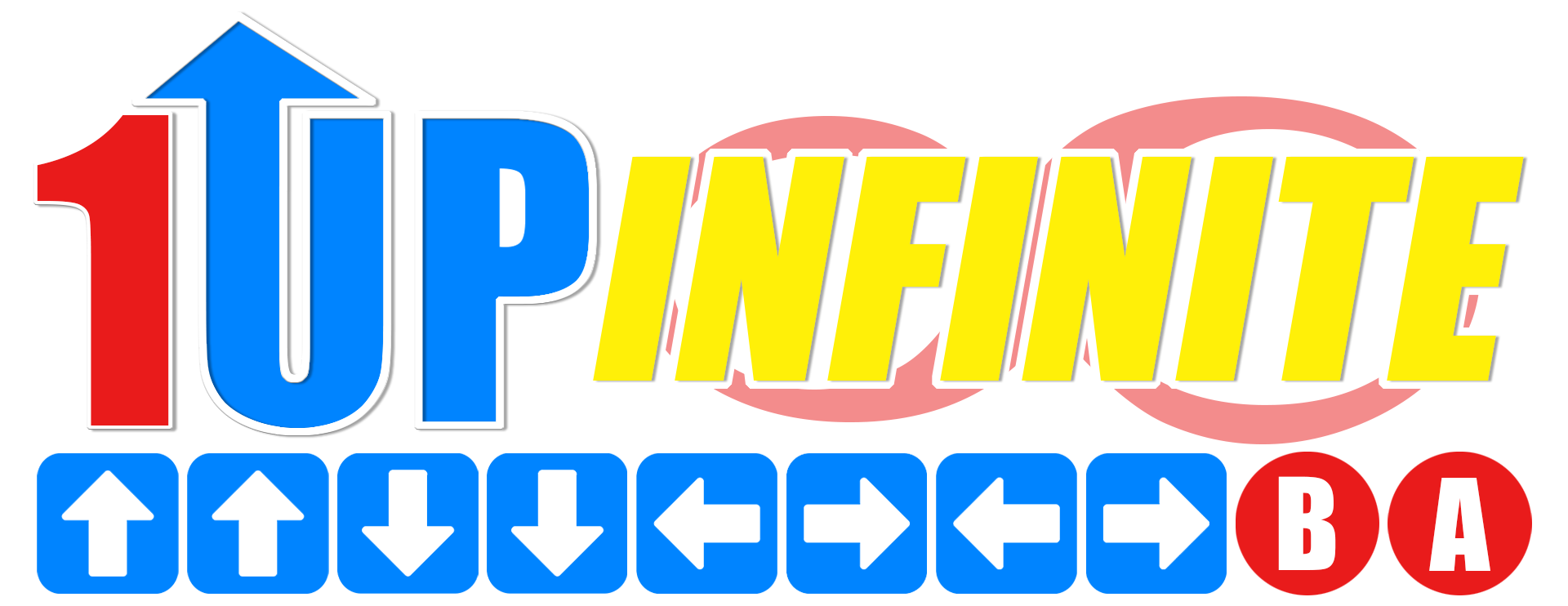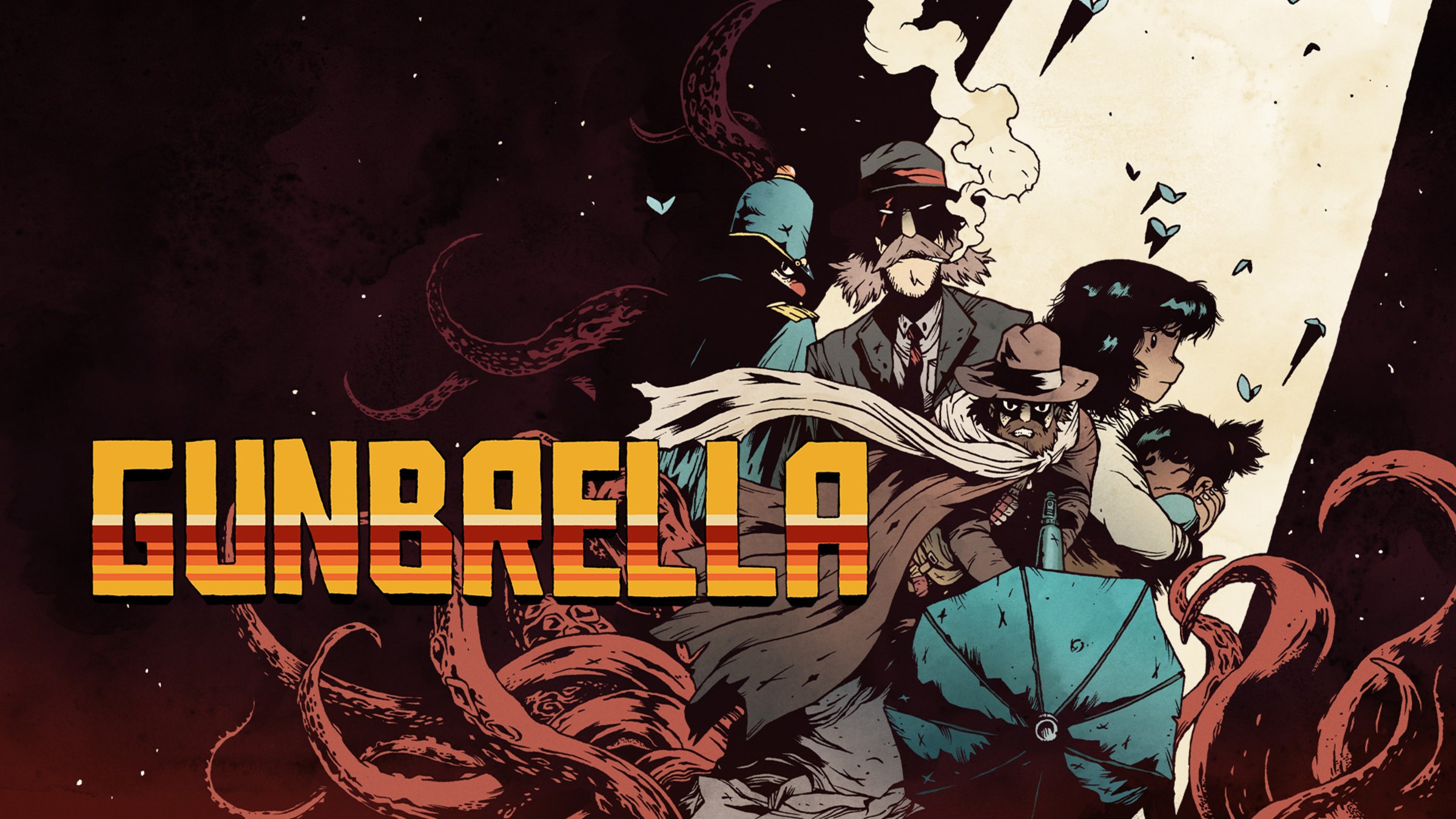Gunbrella
Gunbrella was a title that I've wanted to cover for months ever since I first met the developers, Doinksoft, at last year's PAX East. At the time, these gentlemen were showing off Demon Throttle, a retro-inspired vertical shoot-em-up that lived up to its difficult yet rewarding inspirations. What drew me to the game was not just its Nintendo Switch exclusivity, but also that it was a physical-only experience. The only way to play this game through legit means was by buying it at a physical or an online game store and using the game cartridge. This was a decision made unanimously as it was meant to capture the "heyday" of gaming before it became a digitally saturated storefront.
Later that same year, Devolver Digital would pick up Doinksoft and their first project following Demon Throttle would be one of the largest Doinksoft had achieved. What began as a group of college friends wanting to create the same games they were fans of playing on Super Nintendos was now working on their first large-scale release. I couldn't wait to see what the result would be and after finishing this game recently, I can sum up Gunbrella in one word. Astonishing.
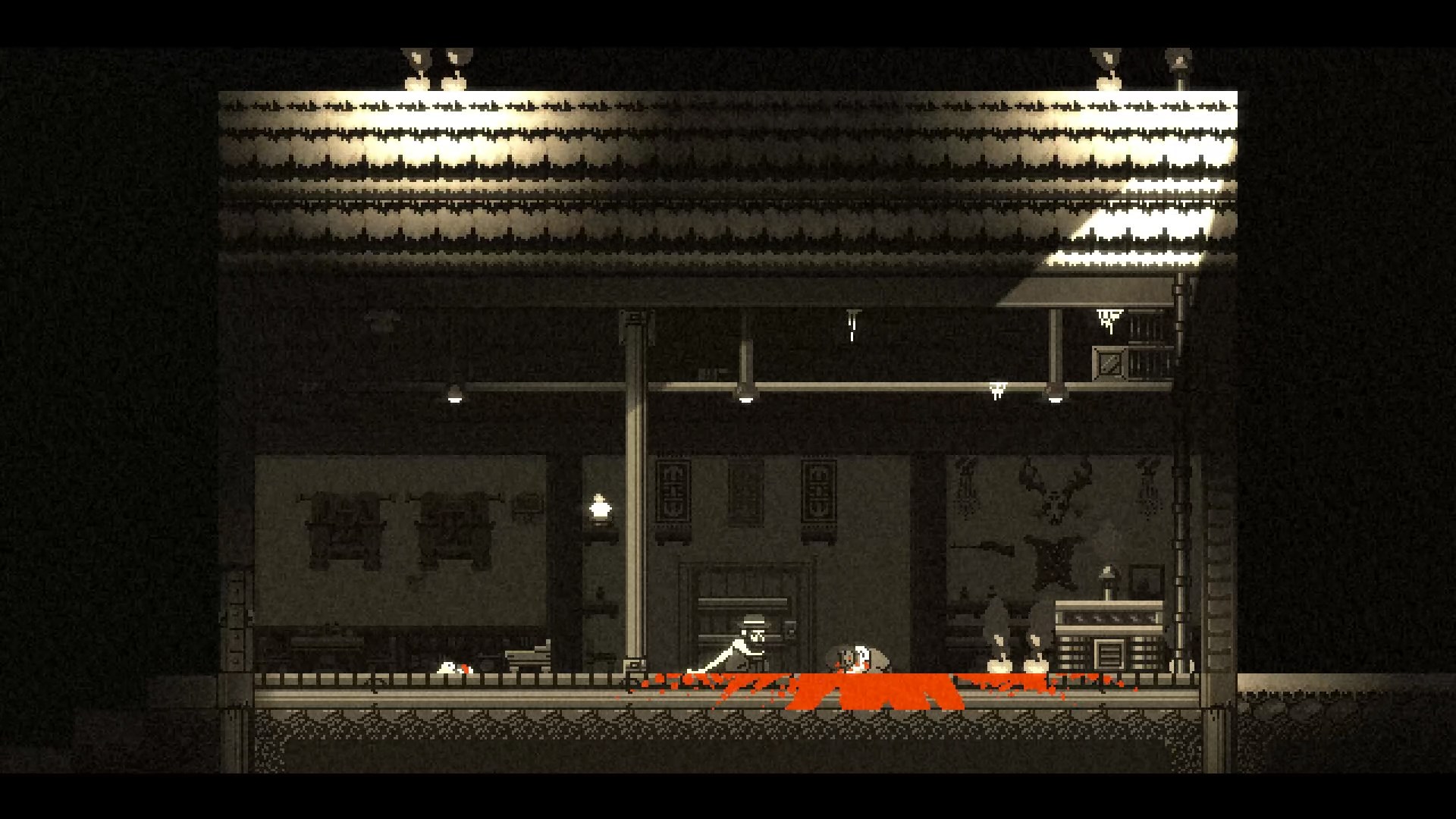
The story begins with a father returning home to find his wife brutally murdered and his child kidnapped. The only evidence left at the scene of the crime is a "gunbrella," a weapon that is exactly as it sounds. Not completely dissimilar to the "Splat Brella" from Splatoon 3 but far deadlier as it shoots actual shotgun shells. The "gunbrella" is a model used by the police, comparing it to a military-grade weapon. However, The Gunbrella is arguably the game's central protagonist as it's the driving force for the man wielding it. It's what takes him across the country to find his wife's killer and enact vengeance. It's also a tool used to make friends and enemies.
Gunbrella surprised me with its narrative-driven story as it's a rare approach for a "Metroidvania" style game. Titles that I've covered in the past followed a story, yet even in games that had cutscenes, I was often unsure of the direction of the game itself. The moment the player enters the first major town, they can already begin to influence the lives of the residents there. There are dialogue choices in this game that are important as almost every dialogue choice matters. Some choices are made which determine the future of certain characters.
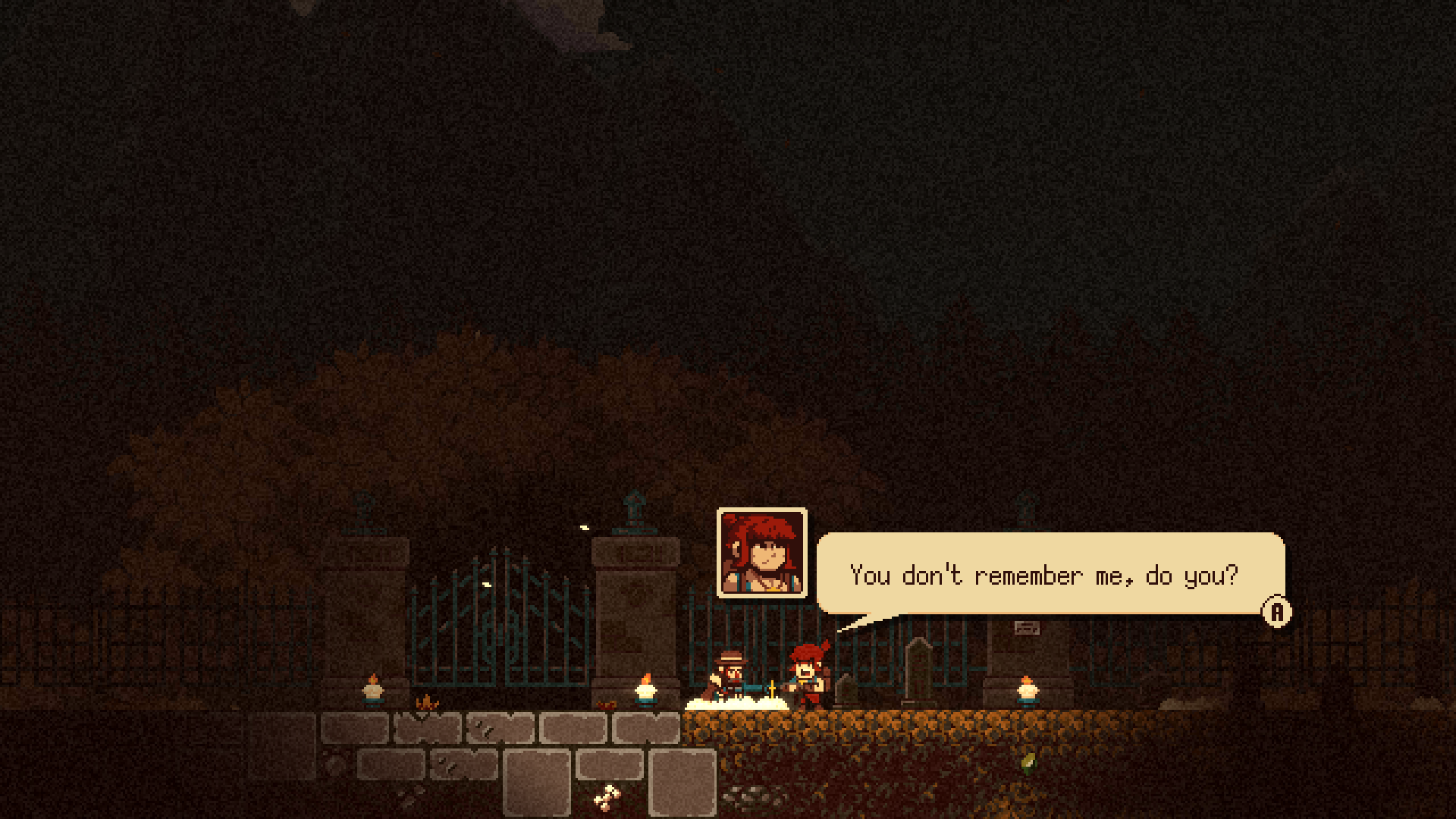
Without going into heavy story spoilers, one of my favorite early game examples was a woman who approaches the father and asks him to investigate her childhood friend, Goldenrod. Since the mayor of the town is kidnapped, it seems no one else in the town cares to bother, but the protagonist can at least promise to look into it. After all, he needs to go into the cultist gang's hideout to save the mayor anyway. Eventually, tragedy strikes and the protagonist can opt to be truthful to the girl about her friend's fate. If they were honest, they would see her return for the second half of the game with a hardened resolve, tied to a future end-game side quest.
Another example of how kindness extends to favors a confrontation with Dregs, a leader of a gang of misfits who are the subject of a misunderstanding surrounding the protagonist. After the fight, the man gives up and barks at the protagonist to kill him but something will seem off. Up until this point, the player has been fighting hostile targets but never a target that has lost their will to fight. Alluding to the several branching personalities that the protagonist may have, if the player decides to wait until the doors open, they will spare Dregs.
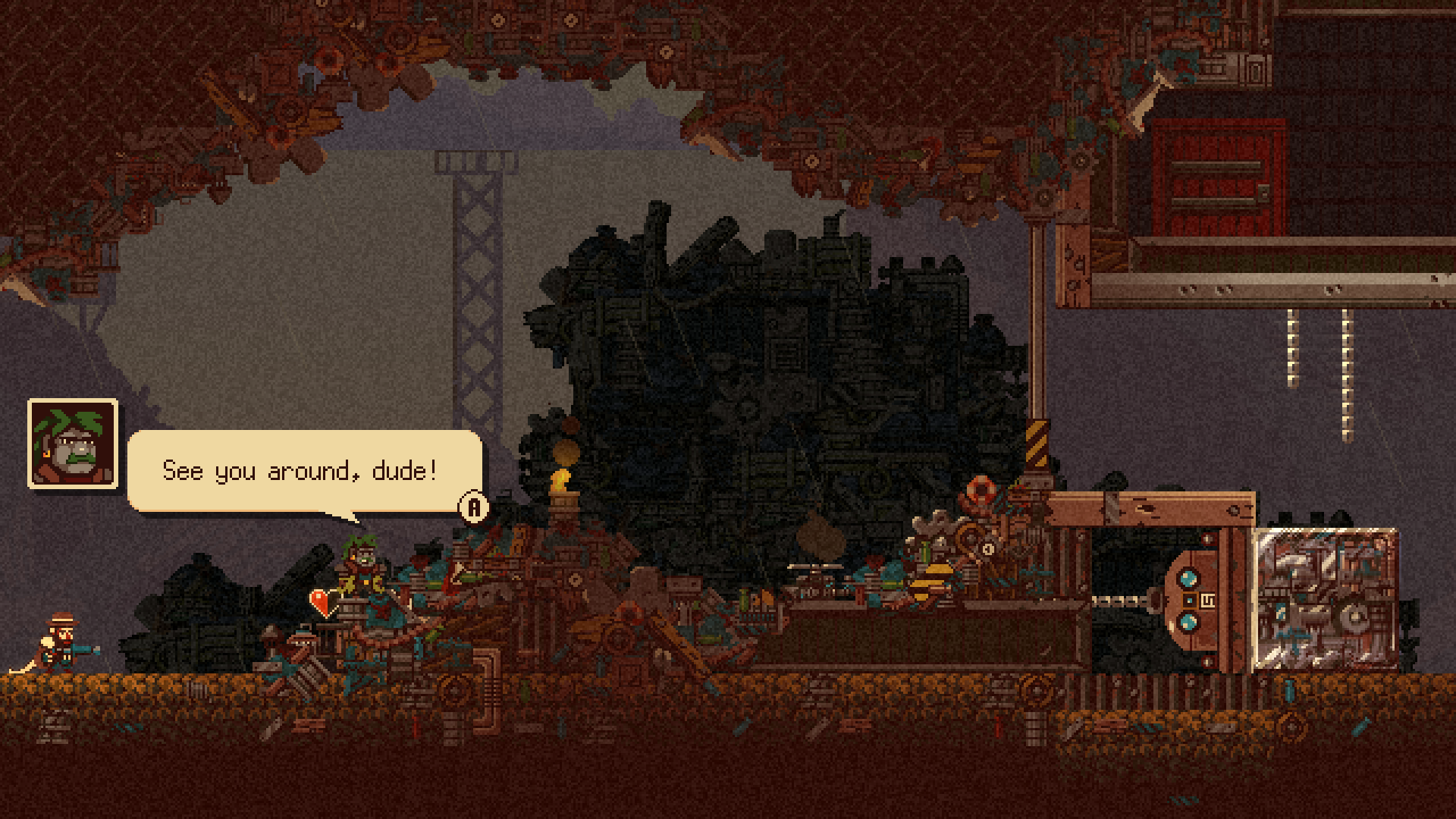
Of course, the player could finish him and no one would bat an eye, but the benefit of keeping him alive means having extra support when fighting the actual boss, a large mutant sewer rat. In that same section of the game, you can choose whether to snitch on the guardsman or keep it a secret that he let you in. If you choose to keep your end of the bargain, he'll reward you with half of a heart capsule. To my knowledge, the only way to obtain heart capsules is by doing "good deeds." Yet in the same way, no good deed goes unpunished. Sometimes, interfering may make an otherwise favorable situation a deadly one for some characters.
What I appreciate the most is that there is backtracking involved, but it's largely used to clear up loose ends with the remaining side characters. There's a time skip where the player figures out the protagonist's name, his wife's murderer, and other key details involving the police force. After some time passes, all the decisions the player made up until this point will either benefit them or come back to haunt them, literally and figuratively. By the end of the game, I felt like I watched a solid "noir-esque" film first that happened to have a really fun gameplay experience tied to it.
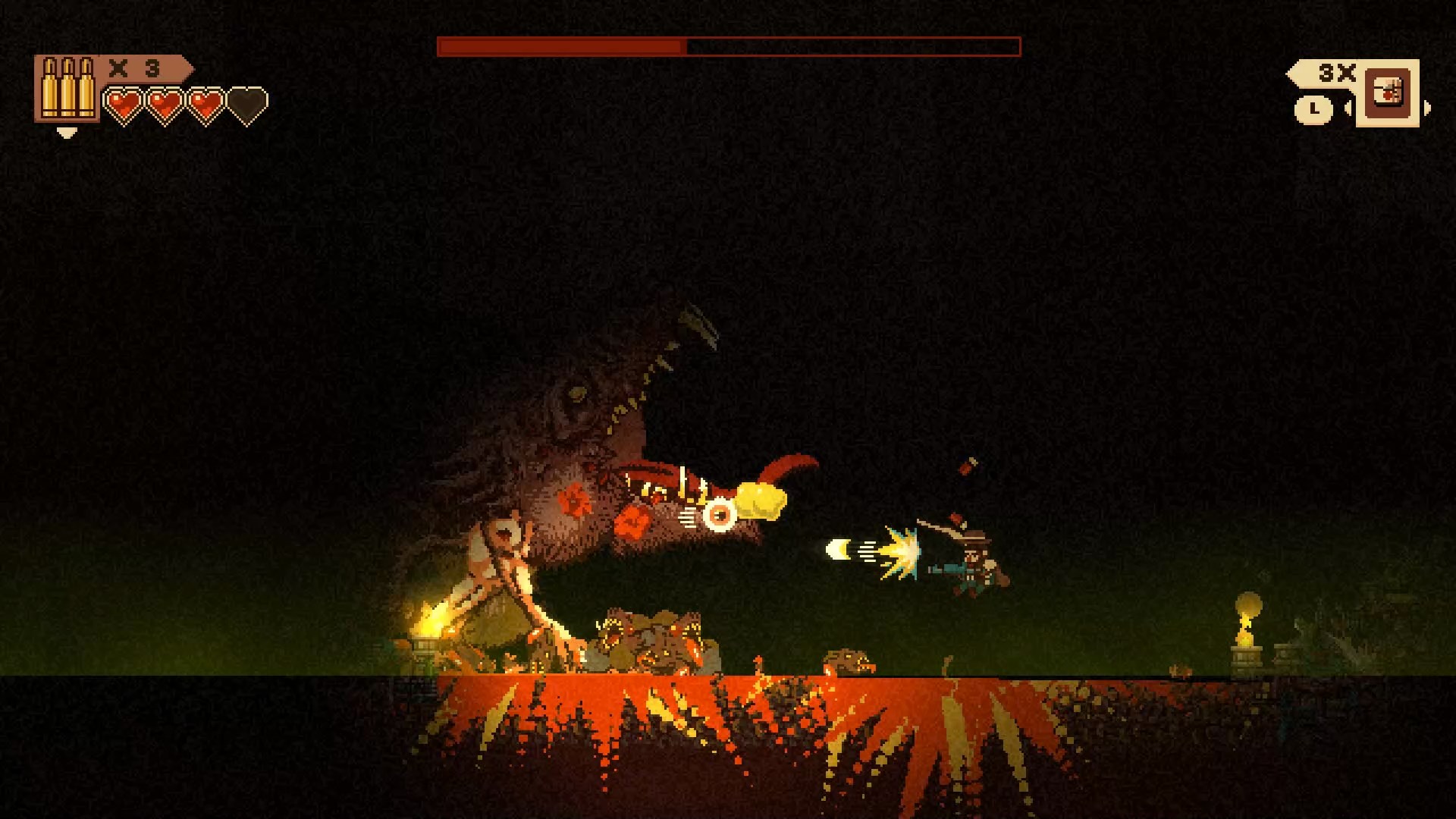
Being that I was surprised by how fantastic the script was, I expected the gameplay to carry itself all the way through and it had done just that. The gunbrella's mechanics gave me a weird mix of Kirby in the sense that you could "float" with the gunbrella much like Kirby can "hover." In the air, the gunbrella can be utilized across all eight directions, with a slight glide upward and a fast fall downward. What I found was the fastest way to move around was alternating between jumping and air dashing downward, as the jump animation cancels the dash animation. This caused me to travel faster than normal means and it was my main method of getting to places quickly.
The gunbrella is also used to deflect projectiles as the majority of the enemies have access to such attacks. Opening the gunbrella is enough to block attacks while blocking it at the right time will deflect and parry the attack. Running into enemies with the gunbrella active will shove them away and parrying will knock them off balance. It acts like a shield as well as a long-range weapon, with the infinite shotgun shells being limited in range, but dealing more damage the closer the player is to the enemy.
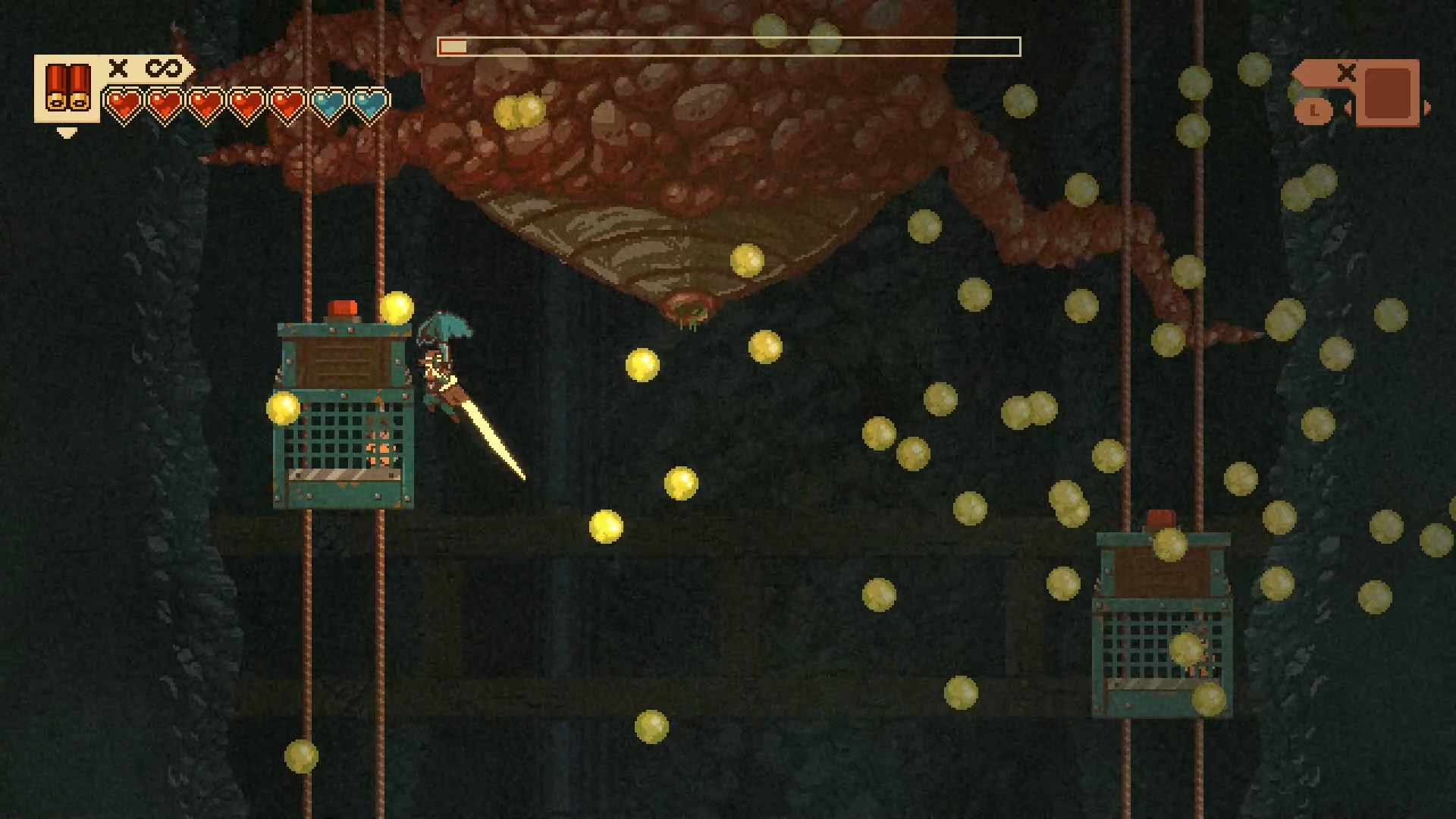
There are several bullet types the player can purchase and find, including grenades, rifles, buzzsaws, and more. Food can be salvaged by "critters" and can be used to grill them for bonus health, while medkits can restore health over time. Lastly, as expected in Metroidvania titles, the maps are vast with unique puzzle gimmicks and tricky platforming to use the gunbrella to its advantage. Boss fights were reasonably challenged although they appeared daunting at first. It taught me not to be afraid of the larger-than-life Eldritch abominations and instead go in gunbrellas blazing.
The song and dance of balancing a tender heart for comrades with cold-as-ice merciless movements against the enemy showed the complexity of Murray's character. Several NPCs will remark that despite his warmliness, he is a skilled fighter "with the intent to kill." It's up to the player to decide which end of the scale he ends up, but by the end of my playthrough, I felt I was content with the decisions made. It was more than enough to consider another playthrough just to see what would happen if I did things differently.
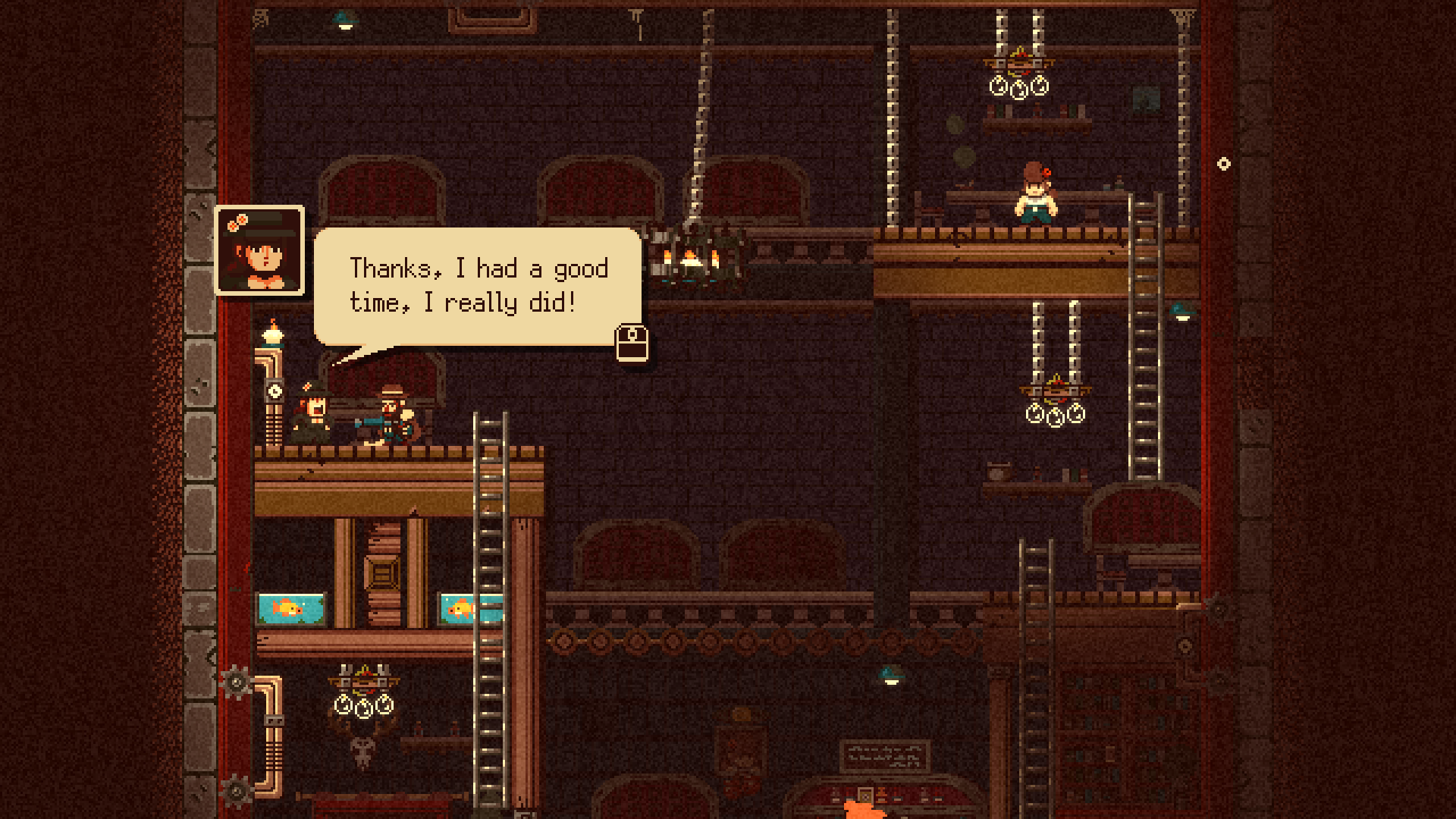
Gunbrella is an amazing title that showcases the hard work of Doinksoft. The same kind of passion I felt from the interview I had with them over a year ago was felt through this experience. Earlier I said that the Dead Cells: Castlevania expansion was one of the most joyous experiences I've had with a "Metroidvania" this year, but Gunbrella did something more for me. It's one thing to have addicting gameplay and it's another to have a compelling story with diverse characters all connected to each other. It's something special to be able to combine both.
Gunbrella is now available on PC and Nintendo Switch
